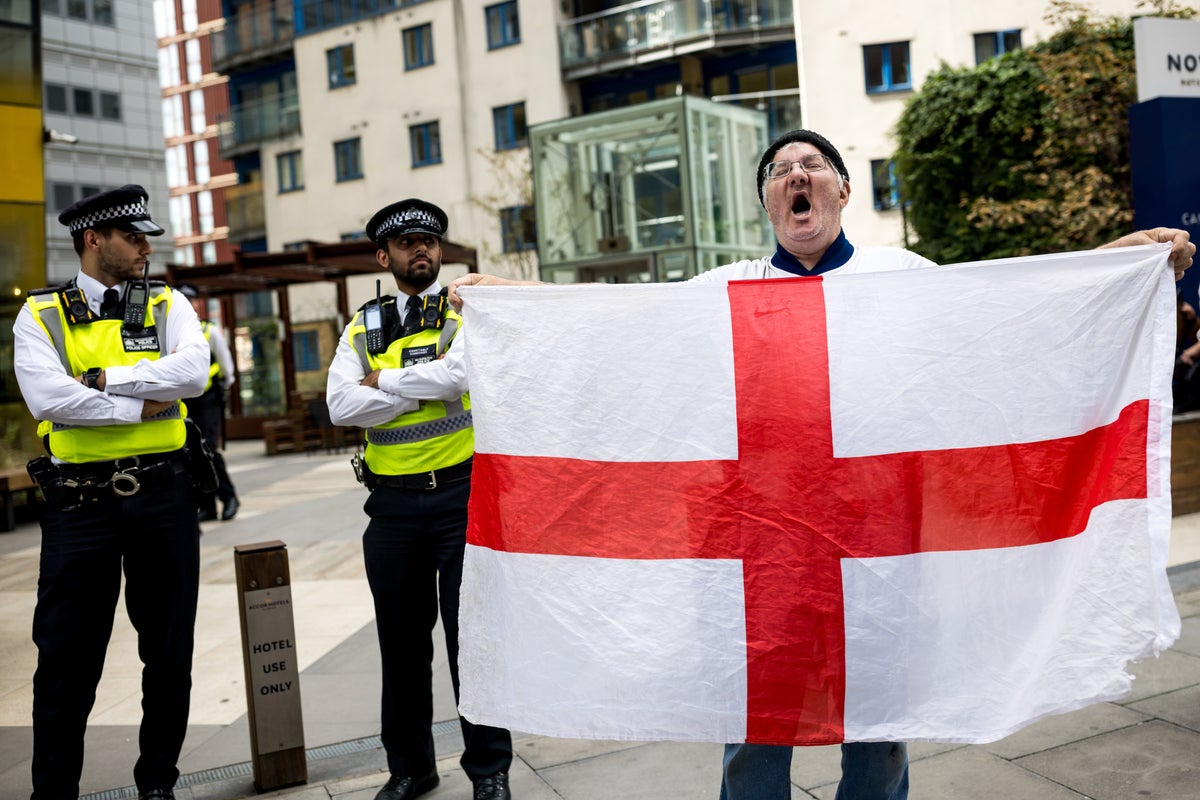
An elite unit of detectives is being convened to monitor social media for anti-migrant posts.
The National Internet Intelligence Investigations team will operate from the National Police Coordination Centre (NPoCC) in Westminster, drawing officers from forces across England and Wales.
The unit will be tasked with flagging early signs of potential civil unrest and “maximizing social media intelligence”, after last year’s riots exposed gaps in police planning.
Home Office ministers say it will give local commanders national support to spot and respond to online threats.
The move comes as protests outside asylum hotels spread across the country. On Saturday, crowds gathered in Norwich, Leeds and Bournemouth to demand action, with further demonstrations planned.
Labour deputy leader Angela Rayner warned the Cabinet that ministers must tackle “the real concerns that people have” about immigration to prevent disorder.
Critics seized on the plan, branding it “disturbing” and warning of free‑speech infringements.
Shadow home secretary Chris Philp accused the Government of trying “to police what you post, what you share, what you think” because it “can’t police the streets” itself. “Labour have stopped pretending to fix Britain and started trying to mute it,” he added, accusing ministers of favouring surveillance over frontline policing.
The NPoCC, which led the nationwide police response to Covid lockdowns under Operation Talla, will co‑ordinate the new unit.
Details of the unit emerged in a letter to MPs from Dame Diana Johnson, the policing minister, published before parliament’s summer recess and were revealed by The Telegraph.
She confirmed ministers were acting on recommendations from the Commons Home Affairs Committee and His Majesty’s Inspectorate of Constabulary and Fire & Rescue Services, both of which urged a nationally co‑ordinated social‑media monitoring capability.
Dame Diana wrote that the new team “will provide a national capability to monitor social media intelligence and advise on its use to inform local operational decision‑making,” helping forces to manage public‑safety threats and risks. While initial funding runs until 2026, she said future support would depend on spending priorities.
A Home Office spokesman said: “This new team will help police forces track real-time information and protect communities from incidents and emergencies before they escalate.
“As part of the government’s Plan for Change, we are restoring visible, neighbourhood policing, focused on the public’s priorities, including halving knife crime and violence against women, clamping down on theft and anti-social behaviour, and ensuring that people can feel safe in their own high streets.”
